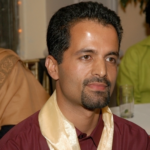Gays, Ship Cruises and Homophobia in the Caribbean
Slipping into port and out of mind
Four friends of mine, all hard-working professionals, recently completed a cruise on one of the many mega-ships that sail among the hundred islands in the Caribbean Sea, many of which are little countries with their own languages, laws and currency. Others are protectorates or territories of larger European countries and are subject to their laws.
 Daily, these big ships bring in thousands of customers to small ports of call to visit the beaches, souvenir stalls, restaurants, dive shops, taxi stands and even real estate offices where a certain few fall in love with a place and find their dream home and never leave. Most, of course, ferry back out to their floating hotels after a day’s activities tired and hungry.
Daily, these big ships bring in thousands of customers to small ports of call to visit the beaches, souvenir stalls, restaurants, dive shops, taxi stands and even real estate offices where a certain few fall in love with a place and find their dream home and never leave. Most, of course, ferry back out to their floating hotels after a day’s activities tired and hungry.
Needless to say, among the crowds are a portion of gay and lesbian tourists, singles and couples, who mingle with the non-gay crowds during mealtimes or participating in ship events in the gym, cinema and stage shows. Or, in the case of Atlantis Cruises, the entire ship is LGBT.
My friends, two gay male couples, report they had a nice time, relaxing from stressful jobs at home. They visited 8 different islands and 8 different cultures, swam in azure waters and wandered the lanes of small towns window shopping or taking a donkey-cart tour. It’s the usual thing tourists do on these trips, gliding along the surface of these small countries interacting slightly with native inhabitants.
After their return home they shared their vacation stories over dinner one evening. During the conversation about the ship’s size, handsome staff (well, a few anyway), the menus, entertainment, crystal-clear beaches and charming villages they visited, I asked if they noticed any other gay folks on the ship. One of them said, “oh, I suppose there were some but we don’t pay much attention to that,” and then went on to another topic.
This comment has stuck in my mind since because of the apparent lack of interest in other gay and lesbian passengers who are fortunate enough to afford a luxury cruise and courageous enough to travel publicly as a couple—gay couples are noticeable. Yet these other LGBT folks were reacted to by my friends with seeming indifference almost verging on disparagement of like-minded others. The comment was all the more surprising since my friends are active in gay rights and HIV charity work which serves others who are less privileged or less well.
Have these friends—prosperous, fashionable, socially connected–become so care-less to the achievements of our own community that they don’t need to recognize the privilege they have and to recognize similar achievement in others? My friends, and likely other gay passengers, have clearly done well in one generation by hard work and resistance against conservative forces that would have us quarantined. We need to recognize one another for our earned achievements and privileges and not act indifferently toward them.
And we need to recognize that such privileges are not so for most of our world LGBT community.
Part of my reaction here, is sourced in my awareness that for many homosexuals in the Caribbean the good life is hardly within reach.
Before these two couples left on their cruise I asked to see their itinerary. The list of ports included San Juan Puerto Rico, St. Thomas, Dominica, St Kitts, Barbados, St. Lucia, Guadeloupe, St. Maarten, Tortola, Half Moon Cay (Bahamas), and Virgin Gorda.
A little research found the following conditions govern homosexuality in the Caribbean:
Legal status: Puerto Rico, St. Thomas, Guadeloupe, St Martin, Tortola, Virgin Gorda
Illegal status: St Kitts & Nevis, Barbados, Granada, Dominica, St Lucia, Jamaica, St Vincent & Grenadines, Trinidad & Tobago
Legal but not accepted: Half Moon Cay in the Bahamas
Wholly unaware were my friends to the fact that in four (St Kitts & Nevis, Barbados, Dominica, and Lucia) of the eleven places they breezed through they were technically criminals: homosexuality is illegal in these small island nations whose legislatures have passed statutes that make outcasts of same-sex-loving people in their societies. In the case of Half Moon Cay, as part of the Bahamas, homosexuality is not illegal but it is not accepted and homophobic attitudes run deep.
The Christian missionaries got to the Caribbean before gay folks did by a few centuries and in their biased wisdom persuaded social and political leaders to determine queers were sinful creatures—at the same time they approved the import of tormented African slaves whose trade enriched many white Christians.
The present day insult cuts deep and visceral for me. In 2005 a Jamaican gay activist friend of mine was murdered in Kingston. A year later another gay activist doing HIV education outreach was murdered in the same city. A year after that a young man who was merely suspected of being be gay was chased by a gang and cornered at the Kingston harbor where he jumped into the water to escape a beating and drowned as the gang cheered.
After two weeks my friends sailed safely home, tanned, a few pounds heavier and went back to work, with the Caribbean an unruffled pleasant memory. Meanwhile many of our Caribbean LGBT community members continue to be harassed and vilified with more violence to come.
I’m not suggesting my friends not take deserved vacations. But it would have been a gesture of integrity if they had informed Holland-American Cruise company that their cruise line is unwittingly supporting homophobic discriminatory governments in certain Caribbean destinations by landing on their shores. If more LGBT travelers recommended the ship company bring economic pressure to bear on these little nations by threatening to stop sailing to their ports, Holland-American could make a fine contribution to human rights and increase their respectability among the gay community worldwide.
For more about homophobia in the Caribbean see this report.
Gay cruise lines: Atlantis; RSVP; Olivia; other Gay and Lesbian Cruises
Richard Ammon – GlobalGayz.com
















